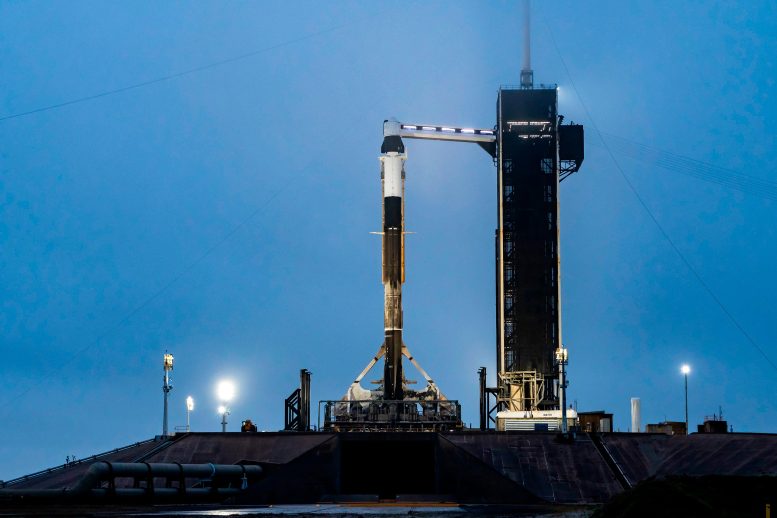
A SpaceX Falcon 9 rocket with the company’s Dragon spacecraft aboard is seen on the launch pad at Launch Complex 39A ahead of Axiom Mission 3 launch. Credit: SpaceX
As part of NASA’s efforts to open access to space, SpaceX and Axiom Space now are targeting no earlier than 4:49 p.m. EST on Thursday, January 18, for the launch of the third private mission to the International Space Station. The date adjustment for Axiom Mission 3 (Ax-3) allows additional time for SpaceX to complete data analysis of the parachute system energy modulator — the straps that connect the Dragon spacecraft’s parachute bag to the parachute door.
SpaceX’s Precautionary Measures
Following Dragon’s return on its 29th commercial resupply services mission to station, SpaceX observed some of the stitches didn’t pull through in the expected manner. While there is a built-in margin through multiple energy modulators, SpaceX felt it was prudent to evaluate recent test data and this condition has been corrected on Ax-3. These straps are folded and stitched together such that when they pull apart, the connecting stitches intentionally break, allowing the straps to pull apart at a constant force. This regulates the amount of load applied to the main parachutes, which takes place as the parachute door and drogues extract the mains out of the spacecraft during the handoff from drogues to mains.
SpaceX proactively wanted to inspect the energy modulators on the Ax-3 parachutes and the team removed the parachute door this past week, inspected the energy modulators, correct alignment of the modulators, and then re-installed the doors.
SpaceX and NASA continue to work together on future flight hardware procedures.
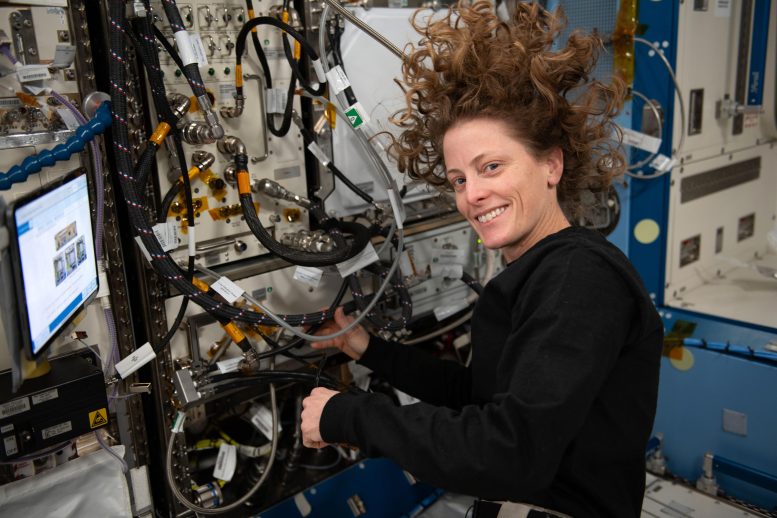
NASA astronaut and Expedition 70 Flight Engineer Loral O’Hara replaces hardware inside the Plant Habitat facility to prep for future experiments investigating genetic responses and immune system function of tomatoes in microgravity. Credit: NASA
Research and Maintenance Aboard the ISS
Aboard the space station, the first wild-type tomatoes from Plant Habitat-06 were harvested aboard the orbital lab today by NASA Flight Engineer Loral O’Hara. Part of an ongoing suite of experiments, this specific investigation takes a look at the physiological and genetic responses to defense activation and immune function in tomatoes during spaceflight.
While space botany was underway, two crew members conducted fluid research with the Plant Water Management 5 system. In the morning, NASA Flight Engineer Jasmin Moghbeli prepped fluids and primed the facility after installing it yesterday. Moghbeli also tested the hydroponic flow of the system. ESA (European Space Agency) Commander Andreas Mogensen later took over, spot checking the fluidic test cell. Mogensen also completed a VR Mental Care session, which demonstrates the use of virtual reality for mental relaxation.
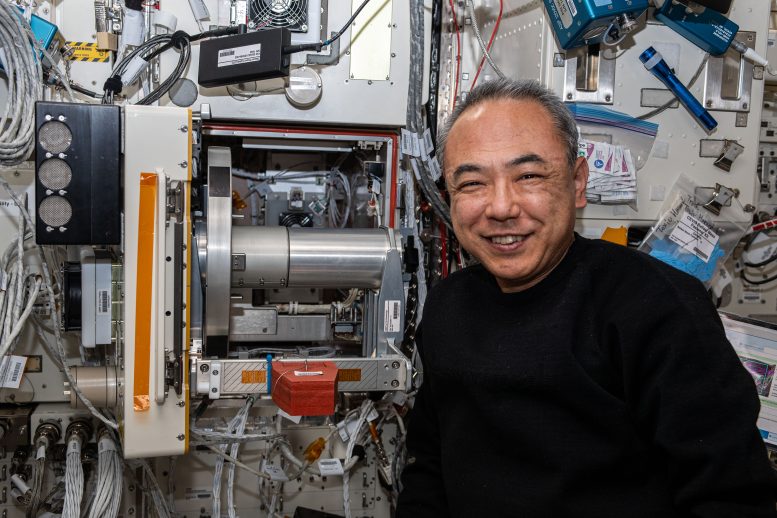
JAXA (Japan Aerospace Exploration Agency) astronaut and Expedition 70 Flight Engineer Satoshi Furukawa poses for a portrait next to the Cell Biology Experiment Facility Incubator Unit inside the International Space Station’s Kibo laboratory module. Credit: NASA
JAXA (Japan Aerospace Exploration Agency) Flight Engineer Satoshi Furukawa was tasked with a suite of maintenance activities throughout the day. He performed tech troubleshooting in the morning, then set up the Internal Ball Camera in the Kibo Laboratory. Afterward, he analyzed water samples from the water processor assembly before cleaning air quality monitor vents. His day wrapped up with some routine orbital plumbing.
Maintenance and research were at the forefront of Wednesday’s schedule for the Roscosmos trio. Flight Engineer Konstantin Borisov replaced dust collector filters in the Zarya module, then inspected the thermal control system pump panel that was installed yesterday. Flight Engineer Oleg Kononenko conducted additional maintenance in the Zvezda service module, then moved on to record vibrations of structural elements in the Poisk module. To wrap up the day, Flight Engineer Nikolai Chub completed an experiment that investigates liquid phases in microgravity.

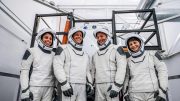


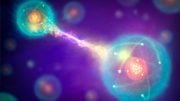


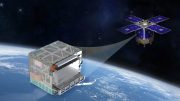

Be the first to comment on "Ax-3 Mission Launch Delayed – Space Station Crew Harvests Plants and Conducts Fluid Research"